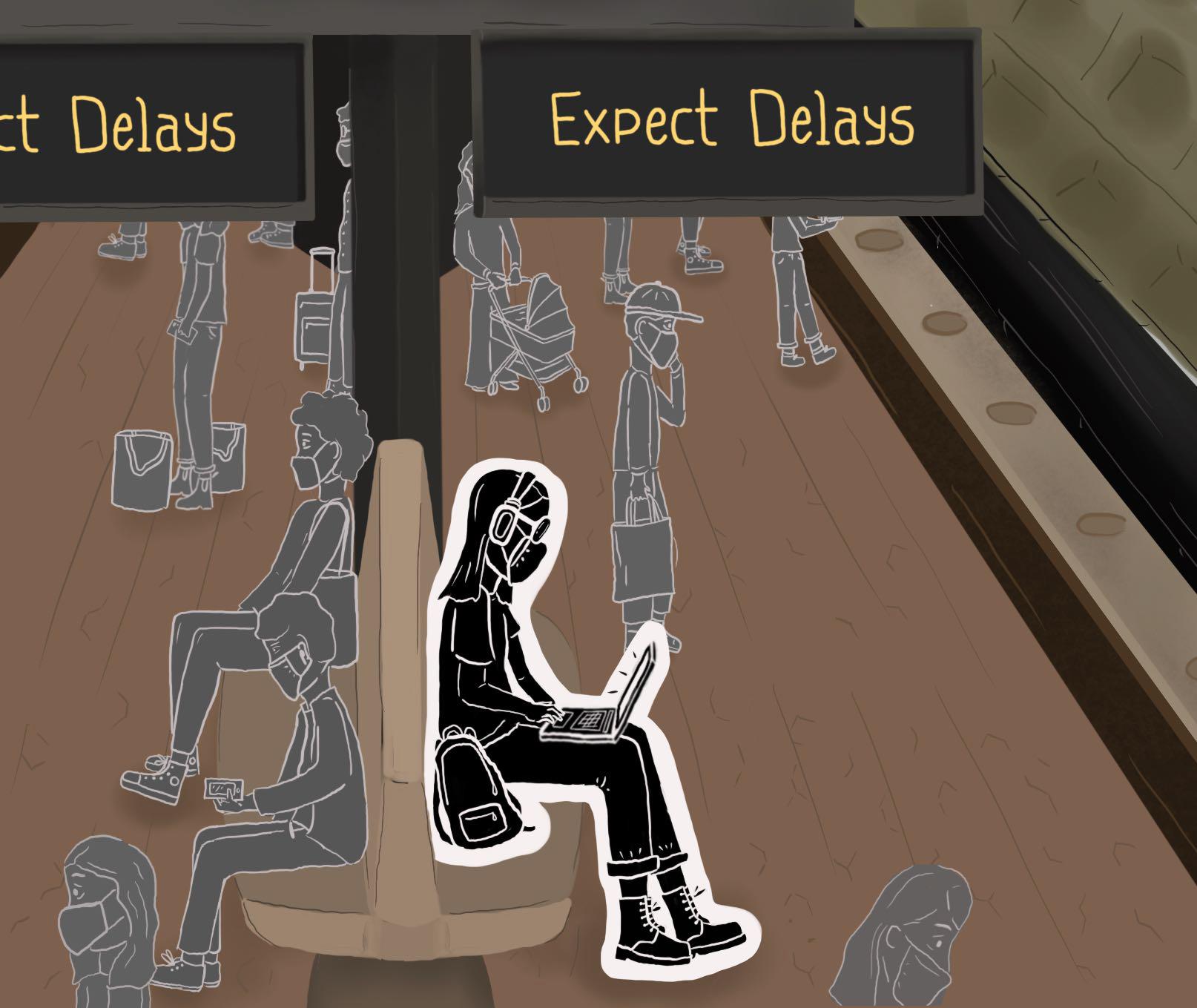Nearly everyone in D.C. has either directly experienced or heard about the grievous Metro delays that are snarling the commute into, out of and within the District. Although most students live on campus within walking distance of classes, there are plenty who do not – and they’re being squeezed by wait times of up to 40 minutes more than usual. Staff and faculty, a greater percentage of whom live a Metro ride away from campus, are affected even more.
While this is not a cataclysmic and life-changing situation for those affected by it, it has impeded students’ lives enough that the University should take some action to ease the burden a bit. From tapping into hybrid learning technology to transportation reimbursements, GW should step in to make life a little bit easier for a community experiencing transportation-related headaches.
The problem began last month, when a Metrorail train on the Blue line slipped off its tracks near Arlington Cemetery, which caused officials to suspend the Blue line service between Foggy Bottom and the Pentagon.
A couple days later, the Metrorail Safety Commission ordered the Washington Metropolitan Area Transit Authority to remove all 7000-series trains as the National Transportation Safety Board investigates the issue, causing 60 percent of the trains to be removed from circulation. This investigation has led to reduced train service, which will last through mid-November.

Maura Kelly-Yuoh | Cartoonist
Students, professors and staff, especially those who live off campus and rely on the Metro to travel to campus, have been affected by the delays. Metro delays might cause some to wait upwards of 30 minutes to make a train. Trains can also get delayed at the last minute, which adds to the uncertainty of getting to campus on time for a class or another time commitment. Those who cannot make it to campus on time because of these delays have also had to rely on other means of transportation, like Uber or Lyft, or use the city’s bikeshare program, Capital Bikeshare, which is now free for one month due to the Metro delays.
But these are not sustainable. Both Uber and Lyfts can cost much more than the cost of a Metro ride, especially for those who live on the outer edges of D.C. or in Northern Virginia. For those with disabilities that hinder them from being able to ride bikes, the bikeshare program is not a feasible option to make it to campus, either.
This is the type of situation in which GW didn’t cause the problem but has the capacity to work to solve it. One key means of alleviating the problem would be to lean on the pandemic-era hybrid learning infrastructure that is already in place. As of now, all classrooms should have some element of a virtual option for students who are either quarantining or isolating due to COVID-19. Some professors allow students to appear over Zoom, others have recorded lectures that are posted to Blackboard. With students and professors already familiar with operating with some element of a hybrid capacity, and with the infrastructure already in place, it would be simple to extend that to students who are affected by colossal Metro delays.
The University can also urge professors to be understanding of students who have trouble making it to campus over the next few weeks due to the delays, the same way professors have been directed to be lenient with attendance policies due to the pandemic. Once again, this relies on existing policies and practices – it just expands them slightly for a few weeks.
But easing attendance policies is far less relevant to faculty and staff, whose presence in-person is crucial to doing their jobs. For them, the University should consider options like need-based transportation subsidies for those who are forced to pick between rideshare and hellishly delayed public transit.
GW did not cause the 7000-series Metro car to go off the rails, but an institution that touches so many elements of the lives of its community has the capacity to step in and make things just a little bit easier.
GW prides itself on how its student body is integrated into the D.C. community and how involved students are with extracurriculars and jobs throughout the District. In the spirit of helping to support that vision, GW should step in to help students who are impacted by transportation delays outside of their control.
The editorial board consists of Hatchet staff members and operates separately from the newsroom. This week’s staff editorial was written by opinions editor Andrew Sugrue and contributing opinions editor Shreeya Aranake based on discussions with culture editor Anna Boone, contributing sports editor Nuria Diaz, design editor Grace Miller, copy editor Jaden DiMauro and assistant copy editor Karina Ochoa Berkley.


